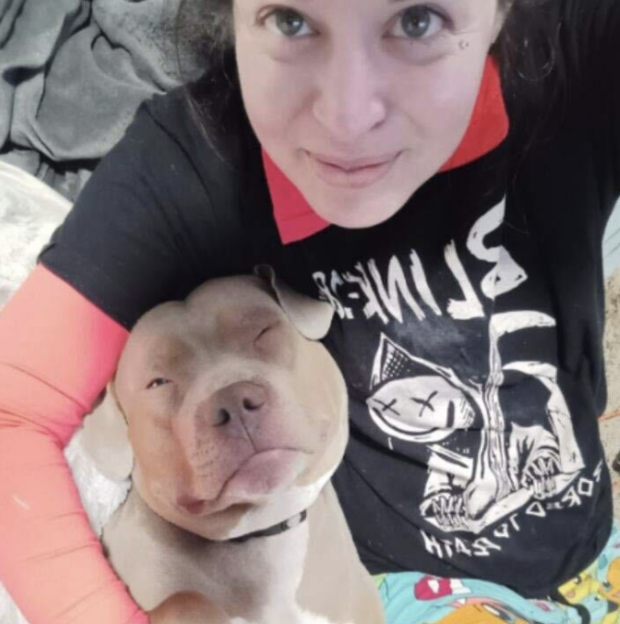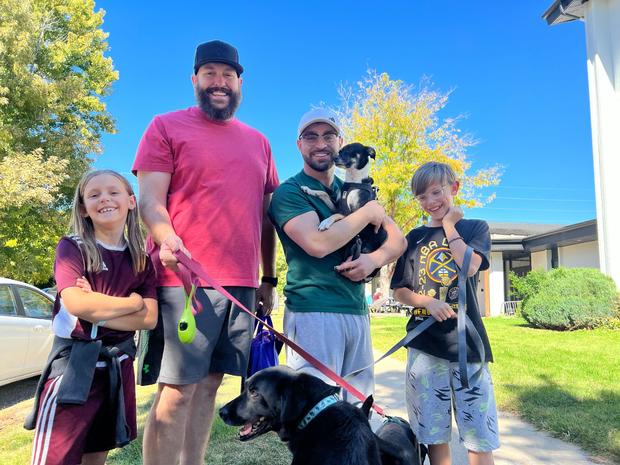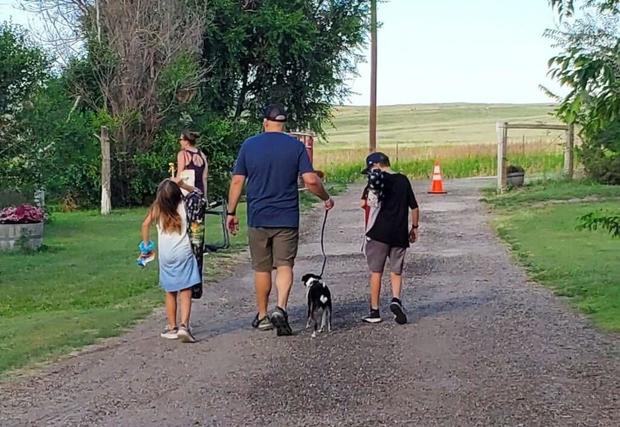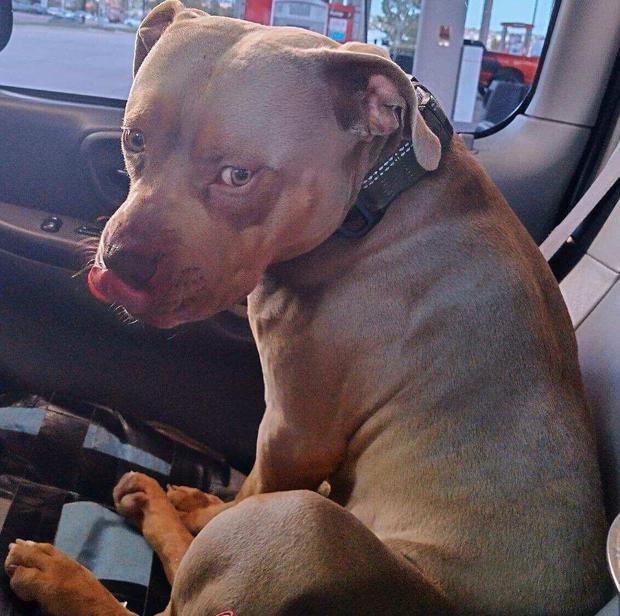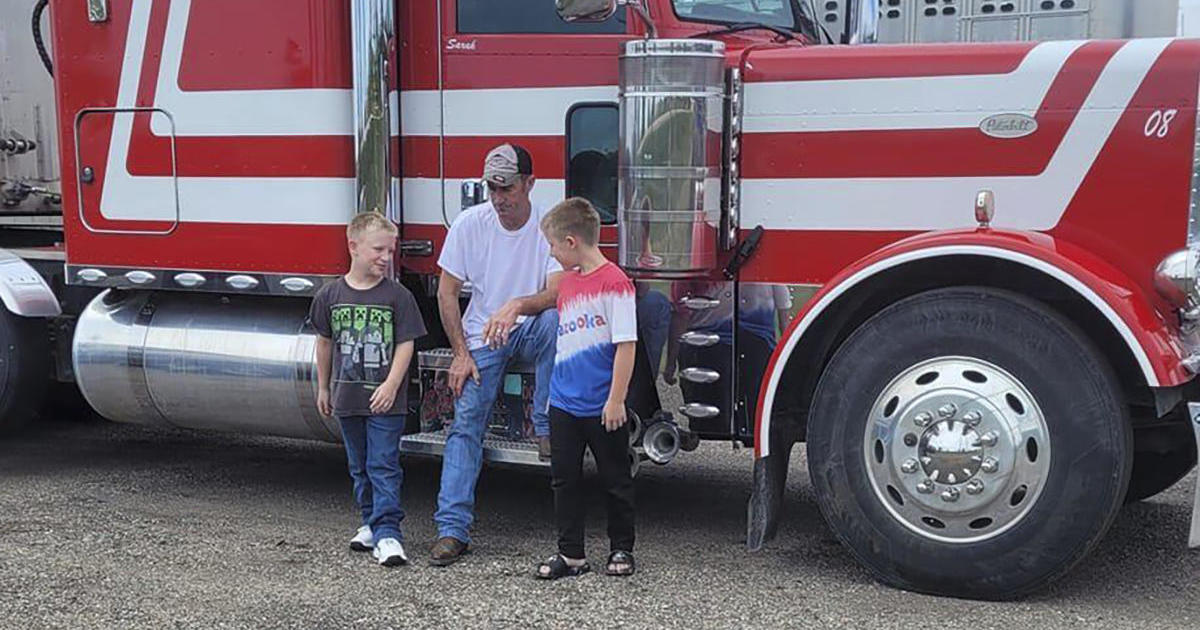People seeking drug treatment can't take their pets. This Colorado group finds them temporary homes.
When Jessica Martinez struggled with addiction after the death of her husband three years ago, she felt the only connection she had left was with her dog, Little Guy — better known as L.G.
The couple had adopted the pit bull about a week before her husband died. Even as Martinez lived out of her car, she felt she couldn't give L.G. up. When her therapist said she would likely have to surrender the animal to enter a treatment facility, she was immediately against the idea.
"I was like, 'If you know anything about me, I don't do that,'" Martinez told CBS News. "I won't give up my dog, especially when that's the dog I had with my husband, so, no."
At the time, Martinez was on probation for drug distribution charges. Her parole officer told her about Pawsitive Recovery, a one-of-a-kind organization run by trained veterinary tech Serena Saunders, places the pets of people struggling with substance use or domestic violence with foster families who can care for them.
For Martinez, it was a ray of hope.
Just days after meeting with Saunders to make arrangements, Martinez was arrested for violating her probation — but a friend was able to bring L.G. to Saunders. Though L.G. had experienced homelessness and showed some aggression toward other male dogs, Saunders helped him find a foster home. Martinez said knowing her beloved pet was in safe hands helped her through her time in jail and in an in-patient treatment facility.
"I was able to get clean. When I got out on bond and was working with my probation officer, I was able to go into sober living treatment. I graduated my (treatment program) and am back in school now," said Martinez. "Everything has turned around for the better, and I wouldn't have had that had I not had Serena. I don't know where I'd be without them today."
Maintaining the bond between people and pets
Saunders, who has been sober for three years, told CBS News she had told her therapist she wanted to find a way to combine recovery and caring for animals, instead of going back to veterinary practice. Her therapist suggested she do exactly that — and Pawsitive Recovery was the result.
Saunders was also inspired by her own experiences: During her active addiction, she had a dog named Oscar.
"He was just such a good guy," said Saunders. "The whole time he was dealing with me, he never judged me, never got mad, was always there for unconditional love and support. And that's what dogs are, and that's why we have such a huge bond with them. That's why it's really important to not throw another trauma onto people's already existing trauma by taking their animals away from them when they're going through a hard time."
Saunders said there was immediate interest in the program, which serves the Colorado area. She's helped find fosters for dogs, cats, guinea pigs and more — once, caring for 10 tarantulas in her office, she said. The organization also brings animals into local treatment centers for animal therapy, such as classes including pet-involved yoga and a program called "Tall Tails" where people who have used Pawsitive Recovery's services while getting sober share their experiences.
Many foster families also have someone in recovery, Saunders said. Ben Cochell, who has worked with the organization since September 2022, has been sober for nearly seven years. When he heard about Pawsitive Recovery, he and his family were eager to participate.
"The exciting thing about it, for me, was the opportunity to help other people in recovery through those challenging times ... or maybe somebody who's experiencing some real tumultuous times, like a domestic violence situations, and needs this immediate care," said Cochell. "We're able to offer our time, some of our money, our experience, our compassion and love, and for temporary periods we get to have a dog and we get to nurture that, and the kids get to experience that, and help the other person."
Cochell's young daughter described the experience as "awesome." The Cochell family has fostered four dogs since 2022. Sometimes, they've fostered a pet multiple times if their owner relapses or needs to return to a treatment facility. That's the situation with their current foster, Dexter.
"What's been neat is Pawsitive Recovery knows, 'You guys have a connection to (those dogs),'" said Cochell. "If something happens, I think we're the first call, and we're like 'Oh my gosh, we'd do anything for those pups.'"
A growing organization to meet national need
The program started as an independent nonprofit, but Saunders said keeping it afloat was difficult. She didn't collect a paycheck for almost three years, she said. But in October 2024, Pawsitive Recovery came under the umbrella of SPCA International, a worldwide animal protection organization. Now Saunders worries less about fundraising and can focus on the people and animals in need.
The goal, she and SPCA International Director of Programs Lori Kalef said, is to expand Pawsitive Recovery. In Saunders' dreams, the organization can be nationwide, with chapters in every state. Nationwide, about 29 million people believed they had a substance use problem, according to statistics from the Department of Health and Human Services' Substance Abuse and Mental Health Services Administration. Overdose deaths in the U.S. have also continued to climb.
Saunders said she sees Pawsitive Recovery as a way to encourage treatment.
"A lot of times, we find people are more concerned about keeping their animals close to them, even more so sometimes than their children or their family, because that bond is just so safe," said Saunders. "And so if you can make it where that bond stays intact, and people can start getting their life together, then they start seeing their children again and they start mending those relationships ... and it sort of falls into place."
That's exactly what happened to Martinez, who told CBS News she is enrolled in psychology classes at Colorado's Pikes Peak State College and is preparing to move from sober living to her own apartment. When she moves, she'll be able to bring L.G. home after about six months apart.
"I cannot wait just to be together with him," said Martinez. "I just want us to live and be happy."
